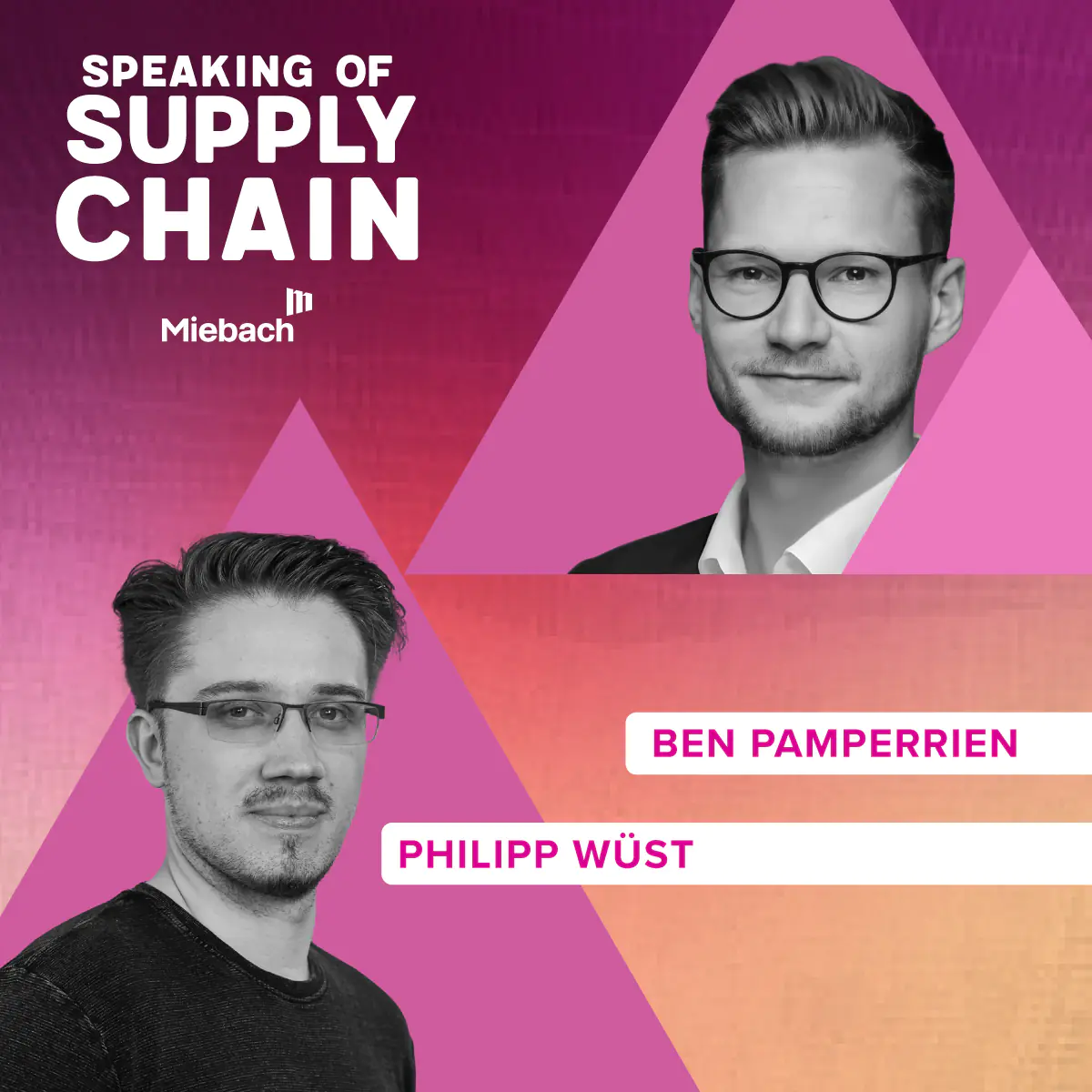
Process Mining
The ability to make data-driven decisions based on real-time operations is a game-changer for many businesses. That’s where Process Mining comes into play - it enables organizations to discover, analyze, and continuously improve their processes using system event logs. By combining process modeling with data science, it turns raw digital footprints into clear insights about how processes truly run – not just how they're supposed to.
Miebach Consulting leverages Process Mining to help clients in logistics and supply chain management uncover inefficiencies, validate process compliance, and support transformative improvements grounded in facts.
Relevance of Capability
Process Mining is not just a diagnostic tool, it is a strategic enabler. The powerful, analytics-driven methodology reconstructs and visualizes complete, end-to-end process execution using system-generated event data. By integrating information from critical supply chain execution and management systems - including ERP, WMS, TMS, YMS, OMS, and MES - it reveals how processes actually perform. Through advanced visualizations, KPI tracking, and continuous monitoring, companies can gain deep visibility into their supply chain and logistics networks, making it a foundational capability for transformation and optimization projects. With insights that uncover inefficiencies, compliance gaps, and opportunities for automation, operational leaders can make informed, data-driven decisions, optimize warehouse and order processes, and establish scalable improvement frameworks across geographies, business units, and technology ecosystems.
In a digitalized supply chain landscape, understanding actual process performance is critical for making impactful decisions. Process Mining delivers transparency that supports business agility and operational excellence.
Organizations that utilize process mining gain real-time, cross-system visibility into their operations, uncovering hidden inefficiencies, enhancing decision-making, and achieving measurable gains in cost, compliance, and service.
Latest developments:
- Predictive Alerts: forecasts delays and bottlenecks (e.g., loading, picking) using ML
- Execution Management Integration: trigger actions (e.g., task reprioritization) directly from insights
- Self-Service Analytics: easy-to-use tools for ops teams – no technical skills needed
Use Cases
Process Mining supports a wide range of operational use cases, including:
- Warehouse task orchestration, resource optimization, and layout redesign
- Order-to-fulfillment process optimization (e.g., pick drop readiness)
- Hold code root cause analysis (credit, pricing, shipping)
- Inventory handling and short-pick tracking
- Automation triggers via EMS and RPA
- Cross-functional performance visibility (e.g., from supply receipt to ship)
Recent advancements include predictive alerts powered by machine learning, anticipating and managing delays and bottlenecks in picking and loading. Execution management integration enables direct, insight-based task reprioritization. User-friendly, self-service analytics tools now give operational teams the power to act - without needing advanced technical expertise.
Challenges faced
Many companies today struggle with complex, inefficient warehouse and logistics operations that impede performance, increase costs, and frustrate workers. At the core of these challenges lies a lack of system-driven orchestration and end-to-end process transparency. One of the most common issues is manual task assignment and override loops, where workflows depend on tribal knowledge and ad-hoc decisions instead of dynamic orchestration. This often leads to inconsistent task execution, bottlenecks, and overall delays. Additionally, high labor effort and unproductive time stem from poor task sequencing and a lack of prioritization logic. Workers spend excessive time walking between zones, waiting for instructions, or intervening manually, draining both time and morale. Another persistent pain point is often found in inbound and outbound delays. Late or inaccurate ASN usage, suboptimal routing, and constrained staging space all contribute to slow receiving and shipping processes. Inventory inaccuracies and short-pick issues are another operational threat, often rooted in outdated replenishment logic or incomplete exception handling. These lead to reactive firefighting, stockouts, and missed picks. Congestion and inefficient warehouse layouts further compound operational problems. Shared aisles, narrow pathways, and poor zoning disrupt forklift movement and reduce overall throughput.
To fully address these challenges, organizations must also navigate broader structural and organizational hurdles:
- Data accessibility and quality
- Lack of stakeholder alignment
- Complex system landscapes
- Tool selection and implementation
- Scaling beyond pilots
The Miebach Difference
At Miebach, we go beyond diagnostics. Our approach to process mining is rooted in operational expertise, strategic alignment, and implementation know-how. The following pillars illustrate how we deliver impactful, end-to-end solutions to our clients:
- Holistic Supply Chain Impact:
clients benefit from our ability to improve performance across the entire value chain—from inbound logistics to warehouse operations and final order delivery - Accelerated Process Mining Readiness:
we help clients identify the right systems and data (ERP, WMS, OMS, etc.) and build scalable process mining architectures aligned with their operational goals - Benchmark-Driven Target Setting:
clients gain from our global benchmarking data and industry best practices, which provide context and realism when defining KPIs and performance goals - Tangible Results and Action Plans:
our process mining projects consistently lead to quantified improvements, including cost reductions, fulfillment speed, and compliance - backed by clear implementation roadmaps - Change Enablement, Not Just Insights:
from layout redesign and process reconfiguration to workforce enablement and system alignment, we support clients in realizing real change – not just identifying it.
What sets Miebach apart?
Our ability to pair a wide range of operational experience with advanced analytics. We deliver practical, actionable recommendations – not just insights.
Our system-agnostic approach lets us extract value from your existing platforms, regardless of vendor. With broad, cross-industry experience, we identify both universal challenges and unique opportunities, calibrated through robust benchmarking. Our flexible, scalable methodology fits pilot initiatives, multi-site rollouts, and enterprise-wide transformations. From issue diagnosis to implementation, we stay hands-on - ensuring consistency, transparency, and measurable outcomes.
What can we help you with?




